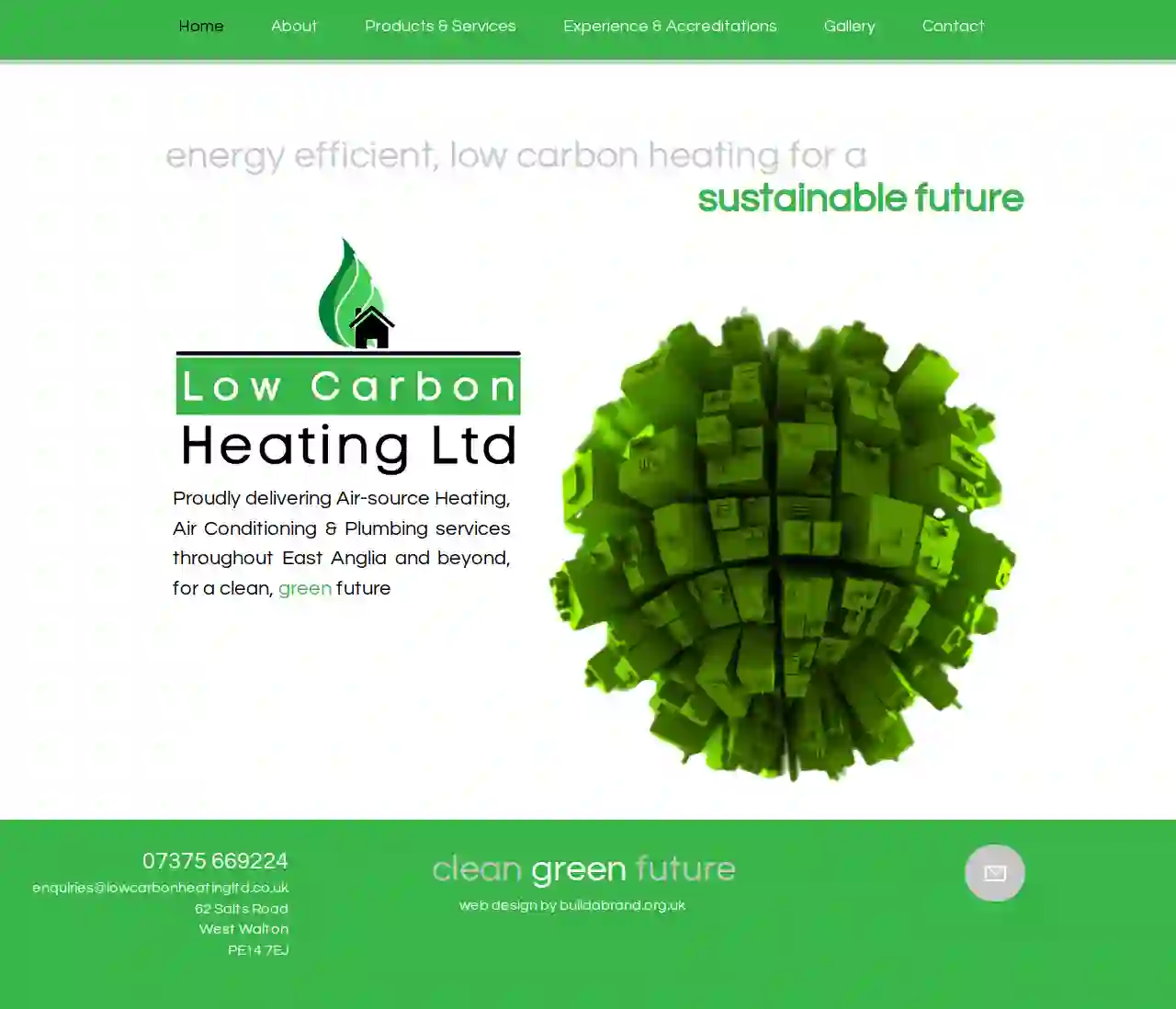Heat Pump Installation Wisbech
Find top Heat Pump Installation in Wisbech
Get multiple Heat Pump System Installation quotes for your project today! Compare profiles, reviews, accreditations, portfolio, etc... and choose the best service.
- MA
MAC Heating & Plumbing
53 reviews123 Main St, City Name, 12345, GBAt [Business Name], we are dedicated to providing exceptional [services] to our clients. With [number] years of experience, our team of experts is committed to delivering high-quality results that meet and exceed our clients' expectations. Our mission is to [briefly describe the business's mission].
- Services
- Why Us?
- Accreditations
- Our Team
- Testimonials
- Gallery
Get Quote - Dc
Dc plumbing and heating Wisbech
56 reviewsWisbech, GB- Services
- Why Us?
- Gallery
Get Quote - Cl
Clk Plumbing & Heating
1Wisbech, GB- Services
- Why Us?
Get Quote - Wi
Wisbech Plumber
1Wisbech, GB- Services
- Why Us?
Get Quote 
Low Carbon Heating Ltd
162 Salts Road, West Walton, PE14 7EJ, GBLow Carbon Heating Ltd is a family-run business with over 30 years of experience in the heating and plumbing industry. We are proud to deliver energy-efficient, low carbon heating solutions for a sustainable future. We offer a range of services, including air-source heating, air conditioning, and plumbing, throughout East Anglia and beyond. Our team of qualified engineers is committed to providing high-quality workmanship and exceptional customer service.
- Services
- Why Us?
- Gallery
Get Quote- J
J B Gas Care
11 reviewsWisbech, GB- Services
- Why Us?
Get Quote - Pr
Pro-Gas Plumbing & Heating
51 reviewsWisbech, GB- Services
- Why Us?
Get Quote - Hu
Huttie Group
4.252 reviewsWisbech, GB- Services
- Why Us?
Get Quote - Mr
Mr gas and heating
4.858 reviews1000 W Shaw Ave, Suite 100, Clovis, 93720, GB- Services
- Why Us?
- Gallery
Get Quote - He
Heating & Plumbing Services Wisbech
51 reviewsWisbech, GB- Services
- Why Us?
Get Quote
Over 16,895+ HVAC Companies in our network
Our HVAC experts operate in Wisbech and beyond!
HVACCompaniesHub has curated and vetted Top HVAC Companies arround Wisbech. Find the most reliable contractor today.
Frequently Asked Questions about Heat Pump Installation
- Air-Source Heat Pumps: These are the most common type and extract heat from the outside air. Air source heat pumps are less expensive to install, but their efficiency can be affected by extreme outdoor temperatures.
- Geothermal Heat Pumps: Geothermal heat pumps use the stable temperature of the earth as a heat source. These provide the highest energy savings and the lowest operating costs over time.
- Water-Source Heat Pumps: Less common than air-source, these use a body of water (lake or well) as the heat source or sink.
- Ductless Mini-Split Heat Pumps: Ideal for individual rooms or spaces, these systems are highly efficient and quiet.
What is the difference between an air source heat pump and a geothermal heat pump?
Air source heat pumps extract heat from the outside air. They are less expensive to install than geothermal heat pumps, but their efficiency can be affected by extreme outdoor temperatures.
Geothermal heat pumps use the ground as their heat source. They are more expensive to install due to the underground piping system, but their performance is more reliable even in extreme weather.
What is a variable-speed heat pump?
How do heat pumps work in cold climates?
What are the different types of heat pumps?
What is the difference between an air source heat pump and a geothermal heat pump?
Air source heat pumps extract heat from the outside air. They are less expensive to install than geothermal heat pumps, but their efficiency decreases in very cold climates.
Geothermal heat pumps use the stable temperature of the earth as their heat source. They are more expensive to install due to the ground loop system, but their efficiency remains consistent even in extreme weather.
What is a variable-speed heat pump?
How do heat pumps work in cold climates?
What are the different types of heat pumps?
- Air-Source Heat Pumps: These are the most common type and extract heat from the outside air. They offer an affordable option.
- Geothermal Heat Pumps: Geothermal heat pumps use the stable temperature of the earth as a heat source. These provide the highest energy savings and the lowest operating costs over time.
- Water-Source Heat Pumps: Less common than air-source, these use a body of water (lake or well) as the heat source or sink.
- Ductless Mini-Split Heat Pumps: Ideal for individual rooms or spaces, these systems are highly efficient and quiet.